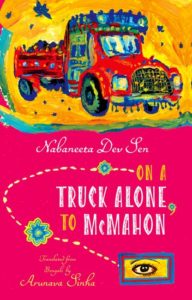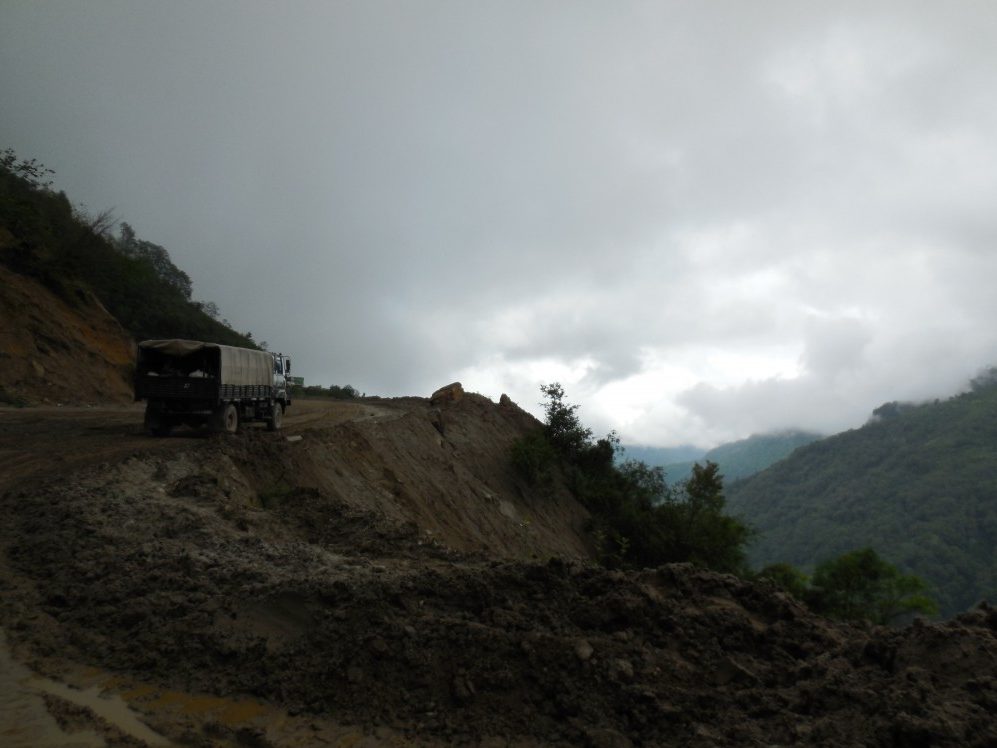For the Sheer Joy of It
‘Can you tell me how to get to Tawang?’
‘What’s that? Tawang? Why Tawang all of a sudden? Do you work on Tibetan history? That’s true, you’ll get plenty of material there….’
‘…’
‘No? You have no interest in Tibetan history? Why Tawang then? I see, you must be specializing in philosophy. Yes, for Buddhist philosophy …’
‘…’
‘Not that either? Neither history nor philosophy? Then what? Wait, I know, Sino-Tibetan languages, right? No?’
Now the gentleman looked genuinely perturbed. ‘Is it anthropology, then? The Mompa versus Khampa conflict? Tribal culture? Not those either? Ah, now I get it. Political science. Border dispute, McMahon Line. Isn’t that it? Have I got it or not? Chinese aggression, Lhasa–Tawang Road. Bomdila occupation. Four dates of the twentieth century are important for you—1914, 1937–8–9, 1951, and 1962. Yes, Sir, Tawang is quite important positionally!’
‘But I’m not researching any of this. I’m not even remotely interested in researching Tawang. I just want very much to go there. In 1975, I heard from a philosopher-friend of mine in Shillong [Rita Gupta] that there are many rare Tibetan manuscripts there. But it’s a very difficult journey. Not too many people make it that far, I’m told. Verrier Elwin did visit a few years ago, though.’
‘So did Kamala Devi Chattopadhyay, but she couldn’t go back.’
‘What do you mean? Isn’t she in Delhi now?’
‘Maybe she is now, but she wasn’t for a long time. She was marooned in Tawang. The road was cut off by snow. She would have spent the entire winter there had it not been for someone having a heart attack.’
‘What! Who had a heart attack? Was it a relative?’
‘No, it wasn’t anyone she knew. An army officer posted in Tawang. He was airlifted to Bomdila in a military helicopter—and, along with him, Kamala Devi Chattopadhyay. An elderly lady, what if something were to happen to her in that extreme cold? That’s the only reason—or else military vehicles are not allowed to give rides to civilian women.’
‘Were you in Tawang too?’
‘Of course not, why should I kill myself in the cold, that too in a place nobody goes to? You know it’s above the tree line, don’t you? There are no large trees, no birds and animals. It’s a lousy place. No one visits out of choice. Nothing to see, except Tibetan yaks and Buddhist monks. That’s what you want to see, right? Useless stuff! The monastery is India’s biggest though. The second largest in the world. The biggest one is in Lhasa. People talk of the one in Dharamshala or the one in Leh, but they’re much smaller. There’s no larger library anywhere. More than two thousand books and manuscripts. To put it simply? A manuscript library, right? Even includes books written in letters of gold. But they won’t let you touch those. Every one of them is wrapped in a fabric of bark, tied with string, and put away safely. I believe they’re dusted and cleaned regularly, though. But no one can read them. How many people can read ancient Tibetan, after all? What do you want to go for? Do you know how to read ancient Tibetan?’
‘I can’t, I can’t. I keep telling you it’s not for research. Pure curiosity. So that I can say, “I climbed the mountain because it’s there”. Tawang’s there, so I want to go.’
‘Why not go to Guwahati instead? Guwahati’s there too. Much easier and safer to travel there, and plenty to see. Have you been to Kamakshyadevi? Gauhati University? Cotton College?’
‘No. I will, one day. But Tawang first. How do you know so much about Tawang if you’ve never been there yourself?’
‘I’ve been in Bomdila a long time, haven’t I? We get all the news at Bomdila. Army people come down from the Tawang area all the time. Of course, Tawang itself is a military-free area, neither Indian nor Chinese army camps are allowed within forty miles on either side of the border.’
‘What a good arrangement! No border guards then?’
‘There are. But they are stationed on the border. Apparently the Indian and Chinese soldiers eat and drink together. Our last military camp this side of the border is at a place named Jung. An open camp, that is. I’m positive we have secret bunkers and an underground campus in Tawang. Nothing will be visible on the surface. All subterranean.
‘Really? I’m getting goosebumps. This is like one of the Ghana-da stories. Now I’m even more excited. I’ll see the subterranean bunkers, lovely. Never seen one before.’
‘You think they’ll let you in? My foot! Are you expecting them to invite you cordially to see the bunkers? Those things are top secret. Even the residents of Tawang have never been told about them. I have no idea what you’re thinking. It’s a very sensitive area, you know. Have you got an inner line permit? It’s all very well to jump up and down saying you want to go there, but can you get hold of a permit? Do you know anyone?’
‘An inner line permit? What on earth is that? Where do you get it?’
‘It’s the government’s permission for entering this reserved area. A passport, basically. Issued by the Arunachal government. They don’t give it to anyone and everyone. You have to provide a reason. A valid reason.’
‘Where must I go to get one?’
‘Itanagar. You have to go to Itanagar.’
‘Which way is Itanagar? How far from Tezpur? Is it on the way to Bomdila?’
‘It’s in the opposite direction.’
‘Really? This is going to be a problem. And you’re going off to Bomdila the day after tomorrow.’
‘What’s that got to do with you?’
‘I was thinking of going up to Bomdila in your jeep.’
‘You can come along if you get the permit. I don’t have any particular objection. But where will you stay at Bomdila? I can’t let you stay at my place. My family isn’t there right now. Arrangements will have to be made at the Inspection Bungalow. But what’ll you go to Bomdila for anyway? There’s nothing to see there. And Tawang is a long way off from Bomdila, you know. Besides, who are you going to Tawang with? Get hold of a companion first. You never know what might happen in those places, you mustn’t go alone.’

Excerpted from the book, On a Truck Alone, to McMahon, by Nabaneeta Dev Sen. Translated from Bengali by Arunava Sinha; Edited by Mini Krishnan. (Published here with permission from the translator)
Oxford University Press; Price: 395.00 INR

